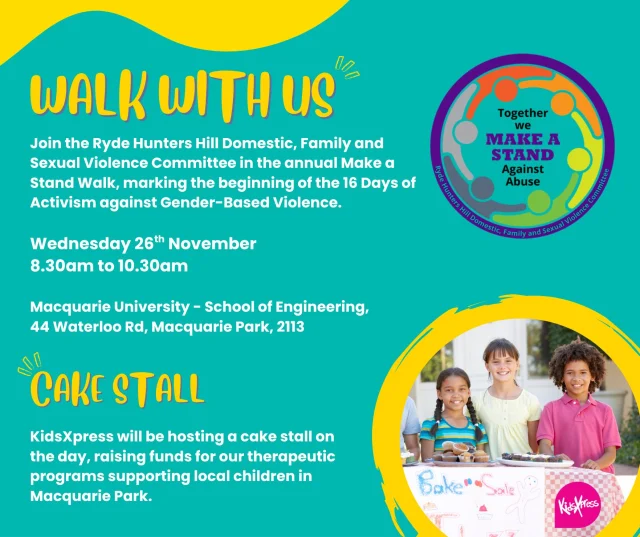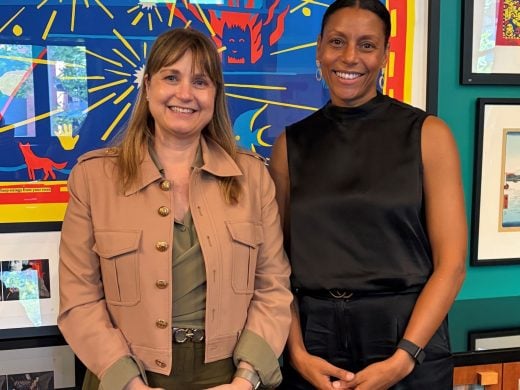
Welcoming Kelly Slessor to the KidsXpress Board
KidsXpress is pleased to welcome Kelly Slessor to its Board of Directors, further strengthening the organisation’s governance and strategic capability.
KidsXpress
FEELINGS CARDS
Buy Yours Today!!
Purchase your KidsXpress Feelings Cards Now!Click Here
Children’s mental health is shaped by their experiences and the relationships around them. Yet too often, children miss out on the support they need when those foundations are shaken. Without help, the effects of these challenges can grow with them into adulthood. That’s why KidsXpress combines expressive therapy with trauma-informed education services to support children under 12 and their caregivers — ensuring the right help, in the right way, at the right time.
(*National Mental Health Commission (2023)).
Mental ill-health affects 1-in-7 Australian children, yet fewer than 25% are accessing care.
Without support, the impact of their condition can grow with them into lifelong challenges. We’re on a mission to change that.
students were reached by us in 2024 through our School Partnership Program, our centres and training programs.
educators, parents and caregivers were supported through our School Partnership Program, centres and training programs in 2024.
of children who attended KidsXpress identified positive change in themselves.
(CORS, 2023 Term 2)
is our cost benefit ratio, meaning that for every $1 invested in KidsXpress a return of $2.76 is generated in social value.
(DAE, 2015, p.46)
This came from a 9-year-old child in Expressive Therapy at our Macquarie Park centre.
When we asked if KidsXpress had been helpful, they said: “Having someone to talk to.”
That was it.
For children, being able to say what’s sitting inside - without being corrected, rushed or fixed - matters deeply. When they feel genuinely listened to, their body softens. They don’t have to keep everything bottled up.
As parents, we can’t always be the only place our children unpack their feelings. Sometimes having another safe adult alongside them makes all the difference. For this child, it was their KidsXpress therapist but teachers, sports coaches and tutors are often other safe adults children turn to every day.
Being heard is often where healing begins.
#TestimonialTuesday #safeadults #selfexpression #expressivetherapy #mentalhealth
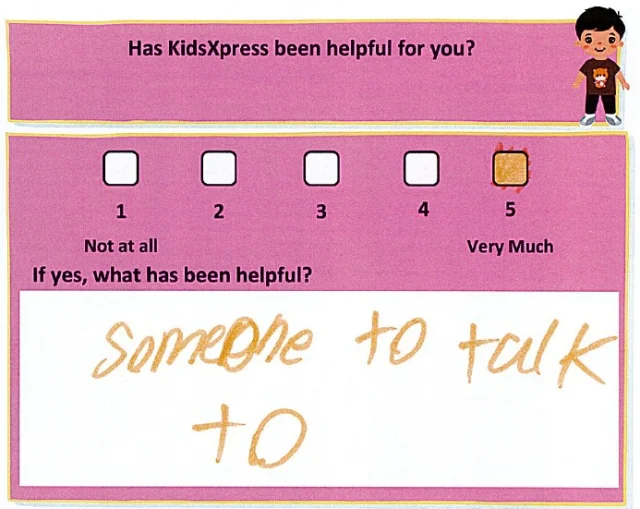
When the world feels unstable, children feel it too.
Even if conflict is happening far away, constant headlines and adult conversations can leave children feeling confused, worried or unsettled.
You don’t need perfect words. You don’t need to explain geopolitics.
You need calm. Safety. Connection.
Here are some gentle, expressive-therapy-informed ways to support your child when the news feels frightening.
#KidsXpress #ChildMentalHealth #ParentingSupport #EmotionalWellbeing #RaisingResilientKids #Trauma-Informed #ExpressiveTherapy #CreativeArtsTherapy
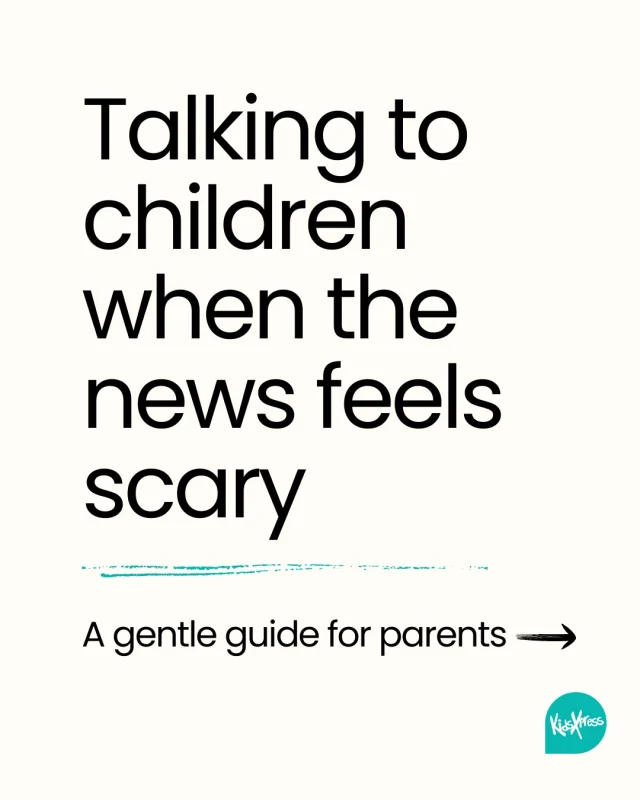
Anger is often protecting something else... fear, shame, sadness or overwhelm. If we respond only to the anger, we escalate it.
Instead try:
• “Something feels big right now.”
• “I’m here, tell me what you need from me right now."
• “Let’s breathe first.”
Regulation before reasoning is vital and sometimes that can look like just sitting quietly with your child until they`re ready to process or express what they`re feeling. When children feel safe enough to express what’s underneath, that`s when the root of the issue manifests and behaviour shifts.
#parenting #expressivetherapy #mentalhealth #emotionalregulation #kidsxpress
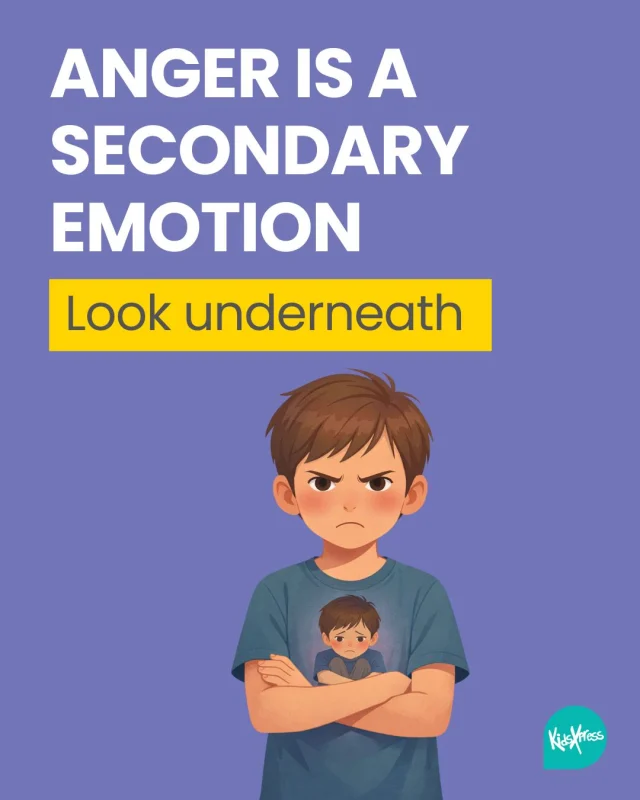
Every child deserves support before struggles become crises.
Because of this partnership, more children can access expressive therapy in the place they spend most of their day - school.
Thank you People First Bank Foundation for standing with children and their wellbeing. ❤️
@peoplefirstbankau
#TYT #ThankyouThursday
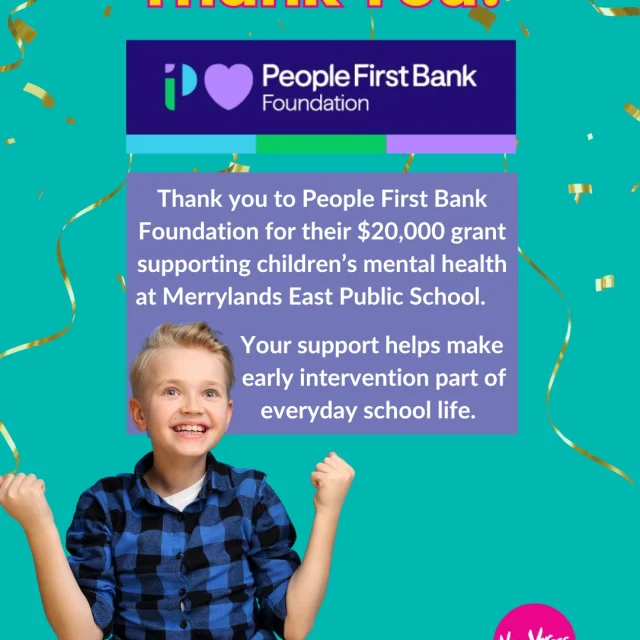
“You can never punish someone into good behaviour” - Andrew Gabriel, KidsXpress
We’re loving this conversation from last week’s webinar by The Fathering Project on supporting men to be the dads they want to be.
Our trauma-informed consultant Andrew was on the panel and made some points that really stuck including the fact that no one can be ‘punished into good behaviour’ and a frank reminder that vulnerability in men is still stigmatised which can make fathering feel lonely, rigid, or shame-based.
At KidsXpress, we see the difference it makes when dads feel safe to be emotionally present, reflective, and connected not just “capable” and “in control”. That shift supports children’s healing too.
#kidsxpress #fatheringproject #dad #toxicmasculinity #stigma #behaviour #relationships #parenting #fatherlife #traimainformed

Join us tomorrow, Wednesday 26th November at 8:30am, as we participate in the annual `Make a Stand Walk`, a powerful event marking the beginning of the 16 Days of Activism against Gender-Based Violence.
📍 Location: Macquarie University – School of Engineering
📍 Address: 44 Waterloo Rd, Macquarie Park, 2113
This walk is a chance for us all to take a public stand against abuse, to walk in solidarity, raise awareness, and show that change begins with community.
To help nourish our walkers KidsXpress will also be hosting a cake stall on the day, raising funds for our therapeutic programs supporting local children in Macquarie Park. So, grab a treat and help us support this incredibly important cause.
Come walk with us, stand with us, and help create change. Because every step counts.
#MakeAStandWalk #16DaysOfActivism #KidsXpress #EndViolence #ItTakesAVillage #WalkForChange #CommunitySupport #MacquariePark
Proudly supporting the Ryde Hunters Hill Domestic, Family and Sexual Violence Committee ❤️
